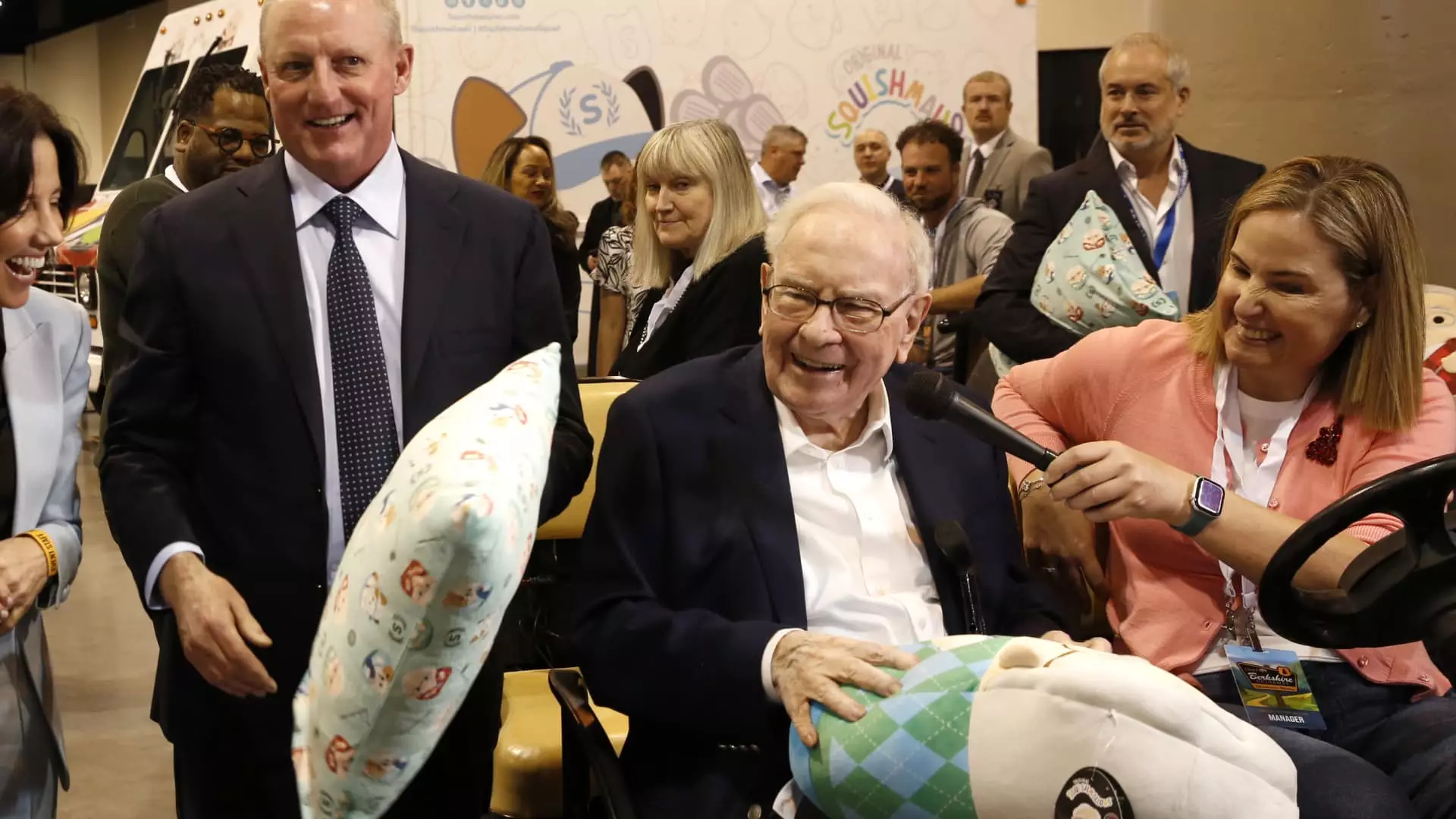Warren Buffett’s announcement regarding his decision to step down as CEO of Berkshire Hathaway and appoint Greg Abel as his successor marks a significant chapter in the saga of American business. For many shareholders, this was not merely a corporate transition; it was the end of an era defined by Buffett’s unmatched acumen and extraordinary success in transforming a struggling textile mill into a $1.2 trillion behemoth. While the news certainly stirred a cocktail of emotions at the annual meeting with hordes of eager shareholders, the transition could very well be one of the most positive transformations the company has ever undertaken.
At 94, Buffett is the embodiment of perseverance, having spent over six decades in the relentless pursuit of value. So, when he hinted at the transfer of leadership, it raised eyebrows, though not entirely unexpectedly. After all, he had designated Abel as his chosen successor back in 2021, a decision that has subtly prepared the Berkshire family and its shareholder base for this inevitable transformation. Yet, it was the immediacy of the announcement that took many by surprise and perhaps initiated a newfound curiosity regarding the future of the corporation.
Buffett’s Cash Cow: A $347 Billion Fortress
Why should investors and shareholders be feeling optimism? One primary reason is the gargantuan cash reserves that Berkshire Hathaway possesses. With a staggering $347 billion in cash, Buffett’s wisdom in capital allocation remains the company’s cornerstone and will be seamlessly inherited by Abel. Buffett’s own reflection on his managerial style — “it’s working way better with Greg than with me” — emphasizes Abel’s more vigorous hands-on approach, which can only serve to invigorate the massive conglomerate with further growth.
Abel, who boasts a roughly 25-year tenure at Berkshire, knows the company inside out. He is not just Buffett’s chosen successor; he is an adept leader poised to dynamize operations across all 60-plus subsidiaries within the conglomerate. Abel’s credentials are impressive. His successful pivot from the traditional energy sector to a diversified energy powerhouse via MidAmerican Energy provides a blueprint for expanding Berkshire’s operational landscape.
The Oracle’s Enduring Philosophy
Buffett’s patient, value-oriented investing philosophy has been the gold standard for decades. However, Abel has indicated that he plans to retain this framework as he assumes control. “It really will not change,” he said, which underscores a commitment to the established culture of thoughtful investing and tempered risk-taking. In a world where style can often eclipse substance, staying true to Buffet’s value-driven investing strategy might be exactly what the company needs as it moves forward.
The prospect of capital deployment under Abel’s stewardship holds great promise, especially during uncertain economic times. Abel’s confidence in the existing strategy sheds light on a continuous evolution rather than a jolting departure from past methods. The ability to swiftly react and invest when opportunities arise will allow the company to not only stay competitive but thrive amidst the changes that will inevitably come.
The Buffett Legacy: Culture Matters
Beyond numbers and investment strategies lies an intangible but crucial element—the culture of Berkshire Hathaway. The very ethos that Buffett instilled over the decades has created an unparalleled sense of loyalty and commitment among employees and shareholders alike. As Abel transitions into his new role, maintaining this corporate culture is paramount.
Although questions loom about who will assume the chairmanship following Buffett’s eventual departure, comments from board members indicate widespread support for this transition. Ron Olson’s reaction, noting his eagerness for Buffett to adopt a mentoring role akin to Charlie Munger, speaks volumes about the expectations surrounding Abel’s leadership.
Moreover, Buffett’s commitment to retain his shares after the transition signifies his enduring belief in Berkshire’s potential under Abel’s helm. This act of financial fidelity is more than just a personal stake; it embodies Bufffet’s trust in his successor and sends a message to shareholders that the company is in capable hands.
The Power of Positive Sentiment
The mood post-announcement was palpably optimistic, culminating in an advantageous standing ovation for Buffett. The sentiment surrounding change, particularly in an organization of Berkshire’s magnitude, cannot be overstated. Change often breeds anxiety, but in this instance, the undercurrents of mutual respect, trust, and strategic alignment are pivotal in alleviating fears.
Abel stands not just as Buffett’s successor but as a fresh canvas for the future of Berkshire Hathaway. Shareholders now have the privilege of anticipating a new era characterized by youthful vigor and innovative drive. The prospect of a seamless transition sprinkled with Buffett’s continued presence is nothing short of an electrifying promise, unleashing potential that could reshape the landscape in which Berkshire operates.
In a world brimming with uncertainty, Buffett’s decision to step down while instilling confidence in Greg Abel emerges as not just a generational transition, but an invigorating opportunity for growth that has the potential to redefine success for years to come.

